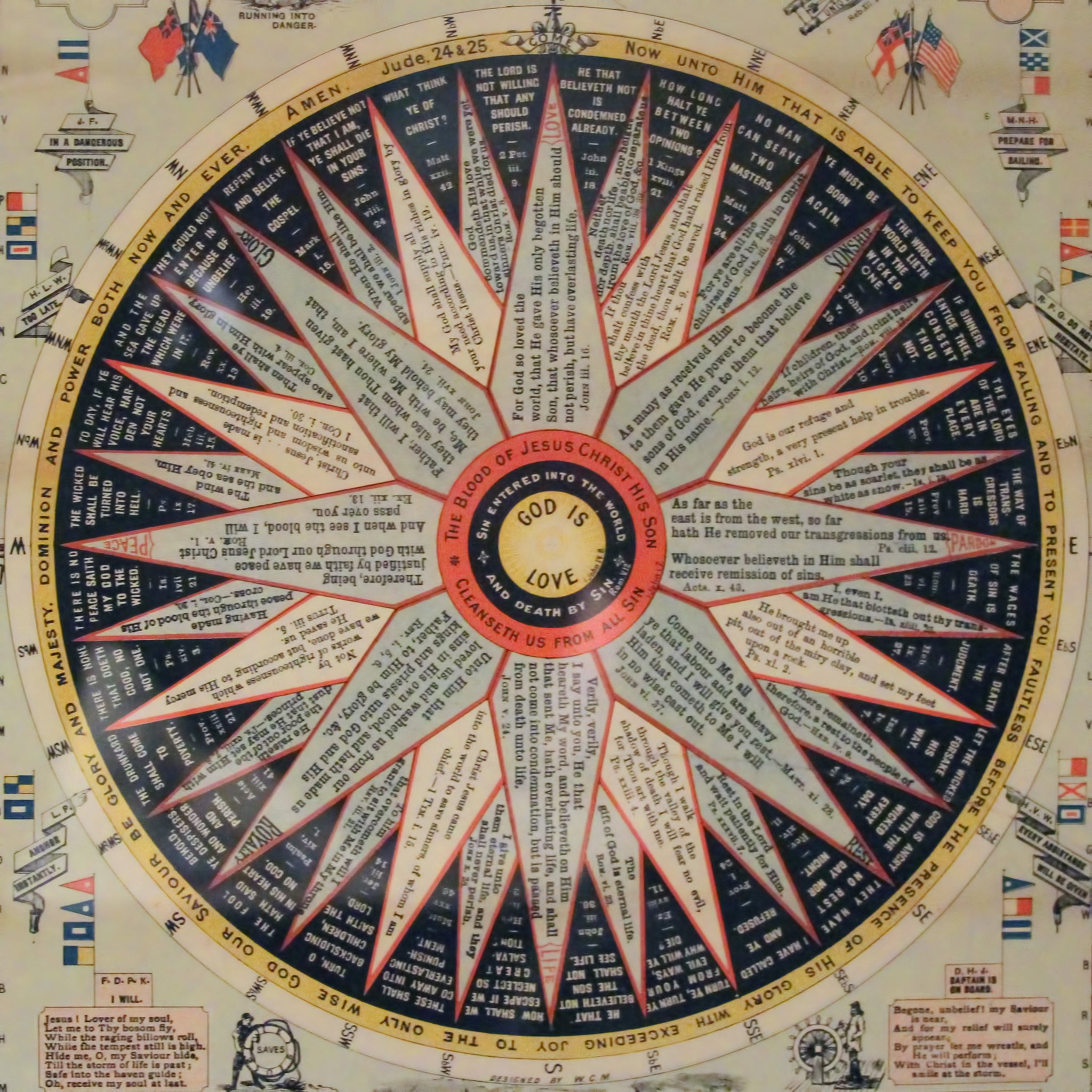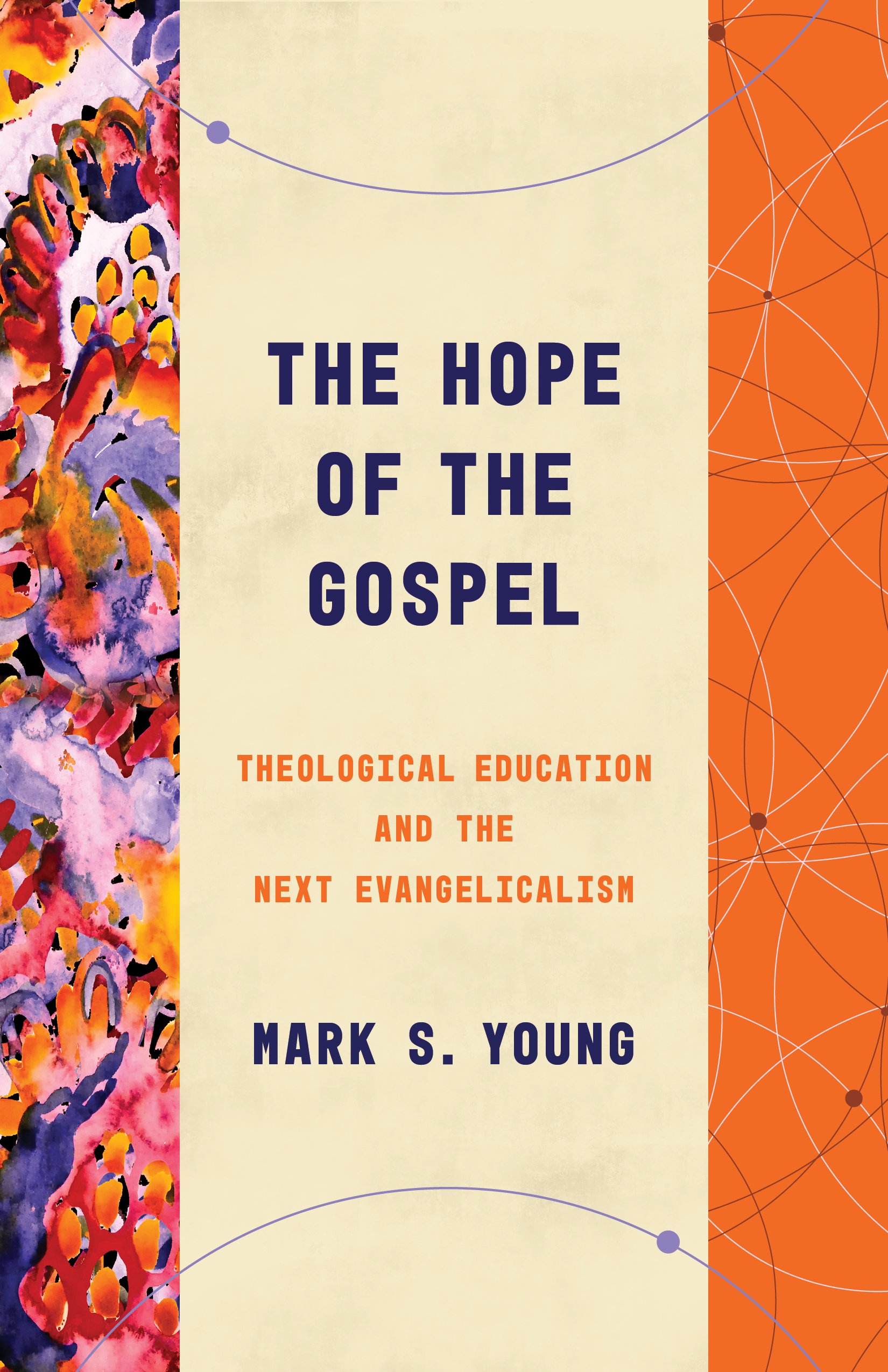The Hope of the Gospel
Dr. M. Daniel Carroll Rodas talks to Dr. Mark S. Young about his book on theological education and the next evangelicalism
Detail from “The Gospel Compass for Sailors of All Nations” (ca. 1880), designed by W.C. Miles. Source: Time and Tide Museum of Great Yarmouth Life, Great Yarmouth, Norfolk, England, UK. Photo: Leo Reynolds
Old Testament professor Dr. M. Daniel Carroll Rodas talks to Denver Seminary president Dr. Mark S. Young about his book The Hope of the Gospel: Theological Education and the Next Evangelicalism (Wm. B. Eerdmans, 2022), which argues for returning evangelicalism to its core commitments.
“We read the Bible too simplistically,” Dr. Young tells Dr. Carroll. “We interpret the Bible too arrogantly, and we apply the Bible too selectively.” Some of us, for instance, treat the Bible like “a handbook with tips for, you know, better living: how to parent your children; how to use your money; how to overcome whatever X,Y,Z. So a lot of evangelical preaching lands on these practical tips of how to live a better life. And, indeed, the Bible is full of wisdom, but it's not just a handbook for happy living.” Dr. Young adds that readers latch on to the idea that the text is “inerrant,” so “we interpret it very arrogantly and say this is the only way this passage can be understood. And then, when I say we apply it selectively—if we're honest with ourselves—we have a canon within the canon. We all choose passages that we say are going to shape the way we do things.”
Along with the book, this conversation is part of the Theological Education between the Times (TEBT) series, an initiative out of HTI member school Emory University Candler School of Theology that "gathers diverse groups of people for critical, theological conversations about the meanings and purposes of theological education. The project begins with a recognition that theological education is between the times, on the way. And it works in the confidence that we do not walk this road alone."
“Mark Young writes as thoughtfully as an evangelical and as insightfully as the president of a leading American seminary. Evangelical theological educators should read this book because it will remind them of the gifts that have distinguished this evangelical movement and point them to the generative work that needs to be undertaken to extend those gifts into the future. Others should read this book because it gives needed clarity to the identity confusion evangelicalism is experiencing and provides valuable insight into the work of evangelical theological schools.”
— Daniel O. Aleshire
Executive Director, Association of Theological Schools (1998-2017)




